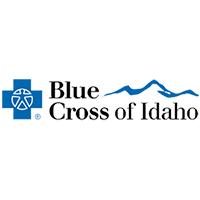About Pearl Health Clinic – Pocatello
Pearl Health Clinic in Pocatello, Idaho, provides mental health and addiction treatment services to adult clients seeking comprehensive care for substance use, mental, and behavioral health issues. Medicaid, Medicare, and state-financed plans are accepted along with private and military health insurance providers. Self-pay is also accepted with sliding scale fees available to those eligible.
Outpatient and Intensive Drug Rehab Services in Bannock County
Based in Grace Lutheran Church this facility offers both general counseling and faith-based counseling services through its regular and intensive outpatient programs (IOP). These options allow participants to keep up their regular daily routines including work, childcare, and study, alongside recovery efforts.
The center specializes in treatment for alcohol, opioid, and other drug addictions with a multidisciplinary team approach to care. Expect regular individual and group counseling sessions along with medication-assisted treatment (MAT) to help lessen your cravings and manage your withdrawal symptoms while also reducing your chance of relapse.
A Holistic and Integrated Approach to Mental Health & Addiction Treatment in Pocatello, ID
The team here favors treating clients’ mental health and substance abuse issues simultaneously for optimal results. Some of the methods used to do this include Motivational Interviewing (MI), Cognitive Behavioral Therapy (CBT), Solution-Focused Therapy (SFT), and experiential therapy.
Program participants also have access to a range of community resources including calming local environments that can provide healing and respite during downtime as well as ideal backdrops for reflection and mindfulness practices. Visit Zoo Idaho when you’re not in treatment or check out Scout Mountain for stunning views of the surrounding terrain.
Rehab Score
Location
Accepted Insurance
Other Forms of Payment
Private insurance refers to any kind of healthcare coverage that isn't from the state or federal government. This includes individual and family plans offered by an employer or purchased from the Insurance Marketplace. Every plan will have different requirements and out of pocket costs so be sure to get the full details before you start treatment.
Self-pay involves paying for treatment out of your own pocket. You can use savings or credit, get a personal loan, or receive help from family and friends to fund your treatment. If you don't have insurance or your insurance plan doesn't cover a specific program, self-pay can help ensure you still get the care you need.
Medicaid is a state based program that helps lower-income individuals and families pay for healthcare. Medicaid covers addiction treatment so those enrolled can use their coverage to pay for rehab. When a program accepts Medicaid the client often pays very little or nothing out of their own pocket.
Medicare is a federal program that provides health insurance for those 65 and older. It also serves people under 65 with chronic and disabling health challenges. To use Medicare for addiction treatment you need to find a program that accepts Medicare and is in network with your plan. Out of pocket costs and preauthorization requirements vary, so always check with your provider.
Private insurance refers to any kind of healthcare coverage that isn't from the state or federal government. This includes individual and family plans offered by an employer or purchased from the Insurance Marketplace. Every plan will have different requirements and out of pocket costs so be sure to get the full details before you start treatment.
Financial aid can take many forms. Centers may have grants or scholarships available to clients who meet eligibility requirements. Programs that receive SAMHSA grants may have financial aid available for those who need treatment as well. Grants and scholarships can help you pai for treatment without having to repay.
Addiction Treatments
Levels of Care
Outpatient Programs (OP) are for those seeking mental rehab or drug rehab, but who also stay at home every night. The main difference between outpatient treatment (OP) and intensive outpatient treatment (IOP) lies in the amount of hours the patient spends at the facility. Most of the time an outpatient program is designed for someone who has completed an inpatient stay and is looking to continue their growth in recovery. Outpatient is not meant to be the starting point, it is commonly referred to as aftercare.
Treatments
A combined mental health and substance abuse rehab has the staff and resources available to handle individuals with both mental health and substance abuse issues. It can be challenging to determine where a specific symptom stems from (a mental health issue or an issue related to substance abuse), so mental health and substance abuse professionals are helpful in detangling symptoms and keeping treatment on track.
Alcoholism is compulsive alcohol consumption that results in significant physical and mental health problems. A person with alcoholism, or alcohol use disorder (AUD), is typically unable to stop drinking on their own and experiences withdrawal symptoms if they do stop. Treatment at alcohol rehab in Idaho is necessary to break this dependency. This treatment process provides the detox, therapies, and support systems needed to achieve and maintain long-term recovery.
Drug rehab in Idaho provides treatment for addiction to drugs. It usually includes a combination of treatment methods that can involve counseling, medication, and a variety of evidence-based therapies. Programs are designed to help individuals manage their substance use disorder long-term.
Substance abuse treatment programs in Idaho may be able to address the unique needs of individuals struggling with drugs and alcohol. These rehab programs include detox, medication-assisted treatment, residential drug and alcohol rehab, and outpatient programs. Therapies like cognitive behavioral therapy, or dialectical behavioral therapy, trauma-informed therapy, and process groups address the underlying causes of addiction. You'll also learn coping skills, relapse prevention strategies, and tools to enhance your relationships — which are skills for long-term recovery.
In Idaho, specialized dual-diagnosis addiction treatment programs prioritize comprehensive care for individuals with co-occurring substance use disorders and mental health conditions. Care levels include outpatient, inpatient, and partial hospitalization programs. Therapies like cognitive behavioral therapy, or dialectical behavioral therapy, experiential therapy, and family therapy address substance use disorders and co-occurring disorders while promoting mental health and well-being. Other recovery supports include 12-Step meetings, skills training, and educational groups, and an aftercare plan to enhance your chances of long-term recovery.
Mental health services play a central role in the treatment of drug and alcohol addiction treatment. A typical inpatient stay is 28-30 days and requires that you live at the facility during treatment. Rehabs provide mental health therapies and treatments that include services like personalized behavioral therapy (CBT), dialectical behavior therapy (DBT), eye movement desensitization and reprocessing (EMDR), and experiential therapy. Holistic services often include meditation, yoga, saunas, and coping skills training.
Programs
Adult rehab programs include therapies tailored to each client's specific needs, goals, and recovery progress. They are tailored to the specific challenges adult clients may face, including family and work pressures and commitments. From inpatient and residential treatment to various levels of outpatient services, there are many options available. Some facilities also help adults work through co-occurring conditions, like anxiety, that can accompany addiction.
Recovery is most successful when clients feel accepted and validated by their peers and treatment providers. Facilities that offer LGBTQ-inclusive programming are committed to creating a safe space where everyone can grow and recover without fear of judgment or discrimination. They will have dedicated policies in place to create a safe and supportive environment that fosters free expression.
Clinical Services
Cognitive Behavioral Therapy (CBT) is a therapy modality that focuses on the relationship between one's thoughts, feelings, and behaviors. It is used to establish and allow for healthy responses to thoughts and feelings (instead of unhealthy responses, like using drugs or alcohol). CBT has been proven effective for recovering addicts of all kinds, and is used to strengthen a patient's own self-awareness and ability to self-regulate. CBT allows individuals to monitor their own emotional state, become more adept at communicating with others, and manage stress without needing to engage in substance abuse.
Whether a marriage or other committed relationship, an intimate partnership is one of the most important aspects of a person's life. Drug and alcohol addiction affects both members of a couple in deep and meaningful ways, as does rehab and recovery. Couples therapy and other couples-focused treatment programs are significant parts of exploring triggers of addiction, as well as learning how to build healthy patterns to support ongoing sobriety.
Experiential therapy is a form of therapy in which clients are encouraged to surface and work through subconscious issues by engaging in real-time experiences. Experiential therapy departs from traditional talk therapy by involving the body, and having clients engage in activities, movements, and physical and emotional expression. This can involve role-play or using props (which can include other people). Experiential therapy can help people process trauma, memories, and emotion quickly, deeply, and in a lasting fashion, leading to substantial and impactful healing.
Research clearly demonstrates that recovery is far more successful and sustainable when loved ones like family members participate in rehab and substance abuse treatment. Genetic factors may be at play when it comes to drug and alcohol addiction, as well as mental health issues. Family dynamics often play a critical role in addiction triggers, and if properly educated, family members can be a strong source of support when it comes to rehabilitation.
Group therapy is any therapeutic work that happens in a group (not one-on-one). There are a number of different group therapy modalities, including support groups, experiential therapy, psycho-education, and more. Group therapy involves treatment as well as processing interaction between group members.
In individual therapy, a patient meets one-on-one with a trained psychologist or counselor. Therapy is a pivotal part of effective substance abuse treatment, as it often covers root causes of addiction, including challenges faced by the patient in their social, family, and work/school life.
Dialectical behavior therapy involves individual and group sessions. During individual sessions, you will work on managing intense emotions. Group skills training sessions aim to enhance skills for daily living. They focus on mindfulness, distress tolerance, interpersonal effectiveness, and emotion regulation.
Unlike other more coercive methods, motivational interviewing does not impose change on the client. Instead, the therapist asks questions, listens, and reflects the client's thoughts back to them. This helps the person come to their own conclusions and supports making changes on their own terms based on those conclusions.
Staff & Accreditations
Staff

Zak Warren, LCPC
Executive Director

Bonita Avery, LCPC
Clinical Director

Austin Page
Administrator

Dr. Jake Arbon, MD
Psychiatrist
Accreditations

State Licenses are permits issued by government agencies that allow rehab organizations to conduct business legally within a certain geographical area. Typically, the kind of program a rehab facility offers, along with its physical location, determines which licenses are required to operate legally.
State License: Idaho
Contact Information
1350 Baldy Avenue
Suite A
Pocatello, ID 83201






